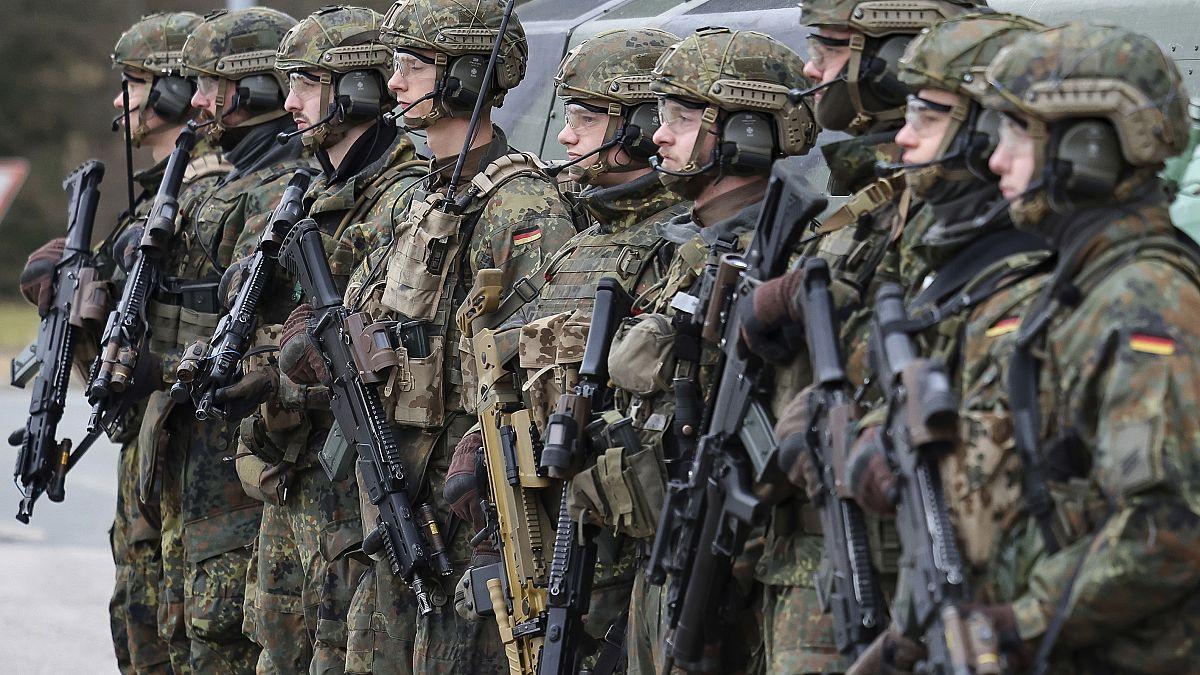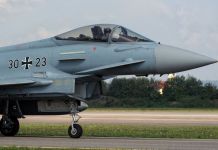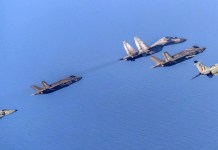In an unprecedented development, a Russian naval ship fired signal shots at a German Army helicopter while it was on a reconnaissance mission over the Baltic Sea.
A German Defense Ministry spokesperson said, “There are occasional rule violations at sea or in airspace, but you can trust that the Navy or Air Force always respond calmly and professionally to de-escalate.”
The incident has triggered concerns about an escalation in tensions between Russia and NATO since these warning shots or flares are typically fired in an emergency.
Some other reports stated that the incident took place last week and involved a Russian cargo ship firing red signal flares at a German helicopter. However, the German Defense Minister reportedly said there have been multiple such incidents in the Baltic.
Earlier, speaking of the incident at a NATO meeting in Brussels, German Foreign Minister Analena Baerbock said: “This underscores the risks of miscalculation in the region and the importance of protecting critical infrastructure.”
Later, the foreign minister took to social media site X (formerly Twitter) to air her country’s concern over the alleged Russian high-handedness. She said pipeline and data cable surveillance in the Baltic Sea would be intensified due to growing hybrid threats from Russia and its allies.
“Putin is attacking our peace order with hybrid attacks,” she warned.
The incident comes amid increased tension in the Baltic Sea. For instance, Russia attempted to change the maritime border in the eastern Baltic Sea earlier this year, triggering fresh tensions with NATO. While the draft was reportedly deleted, the tensions haven’t subsided.
More recently, Russia has been accused of allegedly disrupting sea cables in the Baltic region. Last month, two subsea cables in the region, one connecting Sweden and Lithuania and the other connecting Finland and Germany, were cut, prompting suspicions about Russian involvement. Though Moscow has consistently denied its involvement in such incidents, NATO countries have accused it of carrying out hybrid warfare.
Notably, the reports of the warning shots on the German helicopter come about a week after the Nordic-Baltic Summit, which was convened in Sweden to discuss regional security challenges, primarily from Russia and its allies. As tensions between the US-led bloc and Russia deepen, the Baltic has emerged as a new battleground for geopolitical rivalries.
The alleged firing incident on the German helicopter is just the latest in a series of such incidents that have heightened tensions between Russia and Germany. In fact, some developments suggest that Berlin is already preparing for the eventuality of a direct war with Russia.
Germany Is Preparing For Eventuality Of War
Germany has so far avoided direct confrontation with Russia by denying Ukraine long-range ‘Taurus’ missiles. However, as tensions continue to mount, Berlin appears to be preparing for the eventuality of the Ukraine war spilling over into Europe.
Concerns regarding Moscow’s potential to target NATO countries have been building since Russia’s full-scale invasion of Ukraine in 2022. In recent times, Germany has also accused Russia of using high-speed drones to spy on German military facilities.
German intelligence officials predicted in October that Russia will likely be in a position to attack NATO by 2030. At the time, the officials also drew attention to Russian espionage and sabotage.
In a speech to an annual parliamentary oversight committee in Berlin, the leaders of Germany’s three intelligence agencies, the Federal Office for the Protection of the Constitution (BfV), the Military Counterintelligence Service (MAD), and the Federal Intelligence Service (BND), reported a “quantitative and qualitative” rise in Russian-sponsored espionage and sabotage activities in Germany.
Thomas Haldenwang, the head of the BfV, stated that “we are observing aggressive behavior on the part of the Russian intelligence services” and that these actions “have reached a new level in recent months, which ought to be a wake-up call to all.”

He asserted that “a direct military confrontation with NATO [could be] a course of action for Russia” by 2030 as Putin works toward his long-term objective of undermining the West and creating a new international order. “Whether we like it or not, we are in direct confrontation with Russia,” he stated.
Russia refuted the assertion, accusing NATO of carrying out provocations. However, Germany is already preparing for war after the clarion call. In late November, reports citing Germany’s Interior Ministry stated that the country is compiling a list of bunkers that could offer emergency shelter for citizens.
A ministry official reportedly noted that the list will comprise state buildings, private properties, subterranean rail stations, and parking lots. Moreover, a cell phone app would provide a computerized directory of bunkers and emergency shelters so people can locate them quickly.
Additionally, the spokesperson told a news briefing that people would be urged to convert garages and basements into protective shelters in their houses. However, he declined to provide a timeline, stating that the Office of Civil Protection and Disaster Assistance and other authorities were involved in a large undertaking that would require some time.
The German spokesperson said that a special group was working on the plan and that the key points had been decided upon at a June meeting of senior officials.
- Contact the author at sakshi.tiwari9555 (at) gmail.com
- Follow EurAsian Times on Google News




